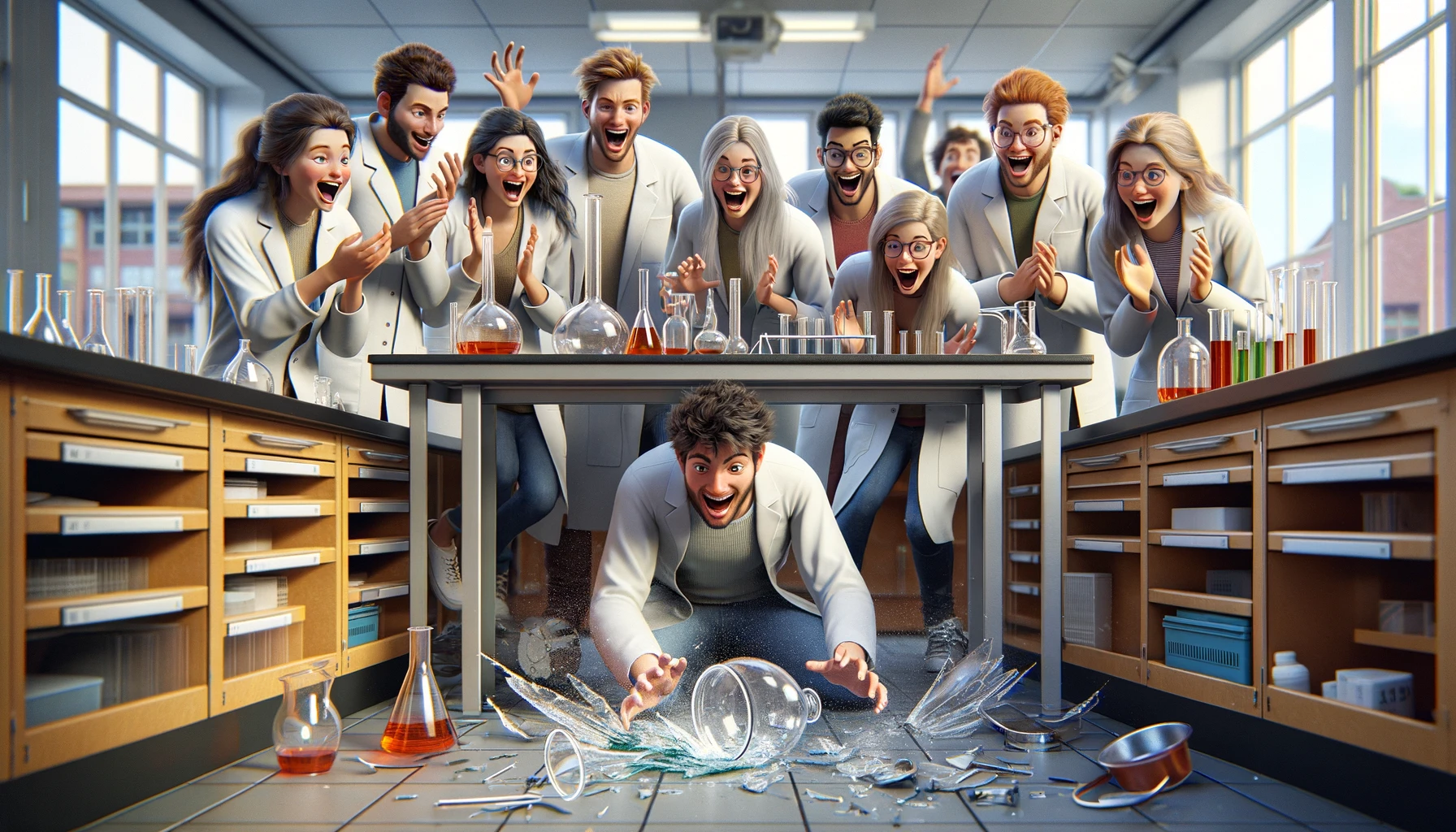At Riverside Springs Community College, the newest gambling sensation doesn’t involve cards or dice, but rather the dubious durability of lab equipment. Within the shadowy recesses of science labs an underground gambling spectacle known as Lab Equipment Bingo has emerged, where students place bets on which apparatus will be the next to conk out, blending the unpredictability of science experiments with the thrill of Vegas.
The game’s inception is credited to a cabal of physics majors who found humor in the lab’s eclectic collection of semi-functional apparatus. “We used to take bets on whether the old spectrometer would start smoking or just give up completely,” shared the group’s ringleader, Marvin Faraday. “It was all in good fun until someone suggested formalizing the game. A few equations were frantically scrawled out and suddenly the chance of success looked even better than passing Differential Equations.”
Lab Equipment Bingo quickly spread like wildfire, with stakes ranging from exclusive study guides to the last good parking spot on campus. It also captivated students in biology, chemistry, and even the engineering department, where the odds of a 3D printer jamming during final project submissions are hotly debated. Bets range from extra credit points to the last slice of pizza at study group meetings, adding a layer of strategy to the academic grind.

Students have turned the game into a pseudo-science, with elaborate theories and statistical models predicting the next piece of equipment to bite the dust. “We’ve got algorithms now. If the centrifuge makes it through the day, I’m buying everyone coffee,” quipped Ellie Vector, eyeing the machine suspiciously.
Faculty reactions have been as varied as the equipment on the betting blocks. Chemistry professor Linda Mendeleev, upon discovering her students more engaged in wagering than in the periodic table, exclaimed, “I thought the excitement was over my lecture on chemical bonds, but they were just waiting to see if the pH meter would stop working during my demo.”
“It was all in good fun until someone suggested formalizing the game. A few equations were frantically scrawled out and suddenly the chance of success looked even better than passing Differential Equations.”
The administration, while initially alarmed at the notion of gambling infiltrating the academic setting, reluctantly warmed to the idea, seeing an unconventional route to boosting student interest. “Students are now enthusiastically learning probability, physics, and the dire state of our funding,” mused Dean Thomas Watson. “If betting on the demise of a scale gets students into the lab, at least they’re off their phones.”
In an unexpected turn of events, the college’s annual administrative budget meeting saw an unprecedented student turnout. The finance committee droned on about allocations for new computer equipment while whispers and covert calculations buzzed through the ranks of students, their notepads filled with more than just doodles for once. “Computers going to the geology department could completely upend the meta of Lab Equipment Bingo,” Faraday whispered, as his peers nodded solemnly contemplating the ensuing shifts in the betting odds.


